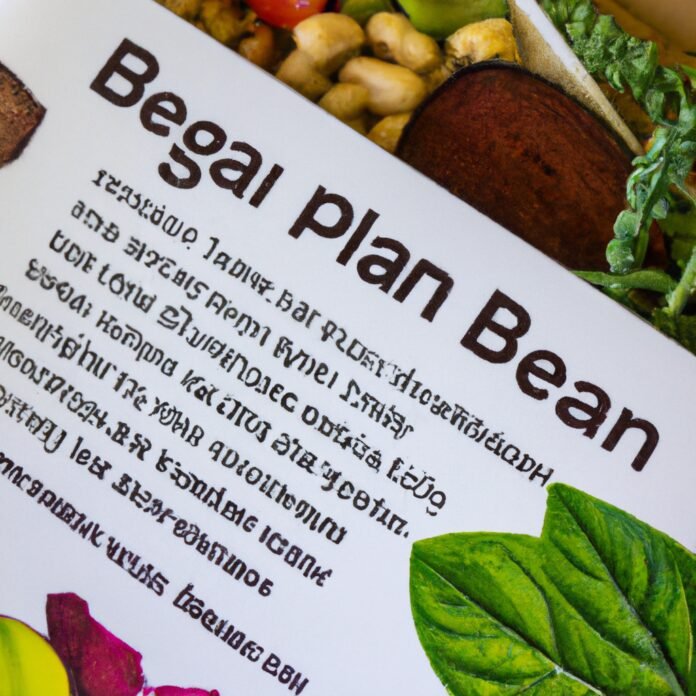It’s no secret that plant-based nutrition is becoming increasingly popular. From the rising demand of vegan-friendly restaurants to a growing interest in alternative dietary lifestyles, people are recognizing the many benefits of embracing a vegan diet. From improved health to a reduced environmental footprint, this article will explore how you can make plant-based nutrition part of your life. You’ll gain insight into the benefits of a vegan diet, learn practical tips to help you incorporate more plant-based foods into your diet, and discover recipes that will make your journey into vegan nutrition delicious and satisfying. Let’s begin!
1. What is Plant-Based Nutrition?
Plant-based nutrition focuses on incorporating more plant-based foods into your meals and snacks. These foods include fruits, vegetables, grains, seeds, legumes, nuts, and oils. Plant-based foods provide essential nutrients such as proteins, carbohydrates, fats, vitamins, minerals, and fiber to keep your body functioning properly.
Advantages:
- Rich in essential nutrients.
- Can reduce your risk of chronic illnesses.
- Healthy way to lose weight.
- Promotes a balanced diet.
By eating a variety of foods from the five food groups – grains, vegetables, fruits, dairy, and proteins – and increasing your intake of plant-based options, your body can get the variety of essential nutrients it needs to stay healthy and strong.
Whole grains, such as quinoa, brown rice, and wild rice, provide a source of protein and fiber, as well as vitamins and minerals. Leafy greens, such as spinach, kale, and chard, are high in vitamins and minerals, while legumes, such as beans, lentils, and split peas, offer a good source of protein. Nuts and seeds are excellent sources of healthy fats and essential vitamins and minerals. Fruits provide essential antioxidants to help reduce inflammation in the body. Finally, oils are an important part of a plant-based diet, providing essential fatty acids.
By eating a variety of these plant-based foods, you can meet your body’s nutritional needs while helping to reduce your risk of chronic illnesses. Plant-based nutrition can be an easy and delicious way to get healthy.
2. Exploring the Benefits of a Vegan Diet
Going vegan is an increasingly popular lifestyle choice that can have profound positive influences on your health. Whether your motivation is animal welfare, environmental concerns, or sheer curiosity, there are myriad benefits that can be reaped from taking on a vegan or even a plant-based diet.
Weight Loss: Vegetarian and vegan diets are typically richer in fiber than animal-based diets, which leads to a feeling of satiety faster. This helps keep cravings at bay, helping to maintain a healthy weight. Moreover, plant-based diets are usually lighter and lower in calories, which helps shed unwanted pounds in a natural, healthy fashion.
Lower Disease Risk: Plant-based diets tend to be lower in unhealthy fats, sugars, cholesterol, and processed meats. All of these components are linked to higher rates of disease, such as diabetes, stroke, and certain cancers. In addition, àlready healthy vegetables, fruits, and whole grains are packed with antioxidants and vitamins, and can help fight off sickness.
- Improved Digestion
- A Boost to your Immune System
- Enhances Overall Health & Longevity
Choosing to cut out animal products does more than just improve your health; it’s an ethical way of living that reduces the leading sources of pollution, improves water conservation, and decreases greenhouse emissions that contribute to global warming. In addition to living a more ethical life, you can also enjoy foods like never before, and your plate will no longer be limited to just fruits, veggies, and grains, but a wide variety of market-ready vegan food that’s more exciting and flavorful than ever.
3. Overcoming Challenges of Plant-Based Eating
It’s no secret that plant-based eating has become increasingly popular – thanks to its many health benefits, environmental friendliness, and more ethical animal rights perspective. Despite its clear advantages, it’s important to be aware of the potential challenges of consuming this type of food – and how to overcome them.
One of the main challenges is budgeting. Plant-based foods (such as whole grains, fresh produce, and beans and legumes) can be expensive. To save money, try buying in bulk, buying frozen versions of fresh produce, and opting for dry goods or canned goods over pre-packaged / pre-prepared foods.
Another challenge is nutrition. Eating only from plant sources can leave some people feeling deficient in nutrients such as iron and calcium. Boost your nutrition by looking into the lesser-discussed sources – such as tahini for calcium and dark leafy greens for iron. Also consider food supplements, widely available and suitable for vegans – though always consult your doctor before taking them.
It can be hard to switch from animal-based products to plant-based options, because the latter may be unfamiliar. Take your time to explore and experiment with new recipes and ingredients – or read up on how to prepare traditional dishes using alternative ingredients. Local cooking classes, social media groups, and plant-based cookbooks can be invaluable resources in this journey.
Don’t worry if it takes a while to adjust to this lifestyle – learning a few tips and tricks will help make plant-based eating more manageable and enjoyable. These three tips are great places to start – and before long, you’ll be a pro at plant-based eating!
4. Embracing a New Lifestyle: Plant-Based Nutrition
Making the switch to plant-based nutrition can be an intimidating prospect, but it can offer many rewards. From physical and mental health benefits to environmental gains, jumping into a plant-based lifestyle can be a beneficial journey, and certainly worth exploring. Here’s what you should know:
- Health benefits: Plant-based nutrition can provide numerous health benefits to the body. Eating a balanced diet rich in vegetables, fruits, legumes, nuts and whole grains can reduce the risk of chronic health conditions like diabetes, heart disease, and certain types of cancer. Additionally, plant-based diets can offer improved energy levels, helpful weight management, and better overall physical performance.
- Environmental benefits: Making the switch to a plant-based diet can help to reduce your impact on the environment. Eating a plant-based diet reduces your consumption of animal products, which adds up to fewer resources used for animal farming and decreased emissions.
It’s not always an easy transition, but it can be done. Start by identifying plant-based foods that appeal to you and fit into your lifestyle. For instance, if you’re a breakfast person, perhaps you can try some overnight oats, chia pudding or a savory tofu scramble. If you want to alter dinner time habits, experiment with quinoa sushi bowls or a vegetable-packed stir fry for something different.
New flavors, textures and combinations can be explored, and there’s no need to cut out every animal product overnight. Even if you just aim for Meatless Mondays, you can still make an impact. The key is to stay consistent and focus on the wonderful new possibilities of cooking and eating with plants.
No matter what dietary path you choose, it is important to learn and understand how to properly care for your body and choose nourishing foods. Plant-based nutrition highlights the importance of fruits and vegetables in our diets, reminding us to embrace the many benefits of a vegan diet. Eating vegan can help everyone to gain a healthier body and planet, serving as a win-win for everyone. So why not give it a try today and reap the benefits of a vegan diet?


